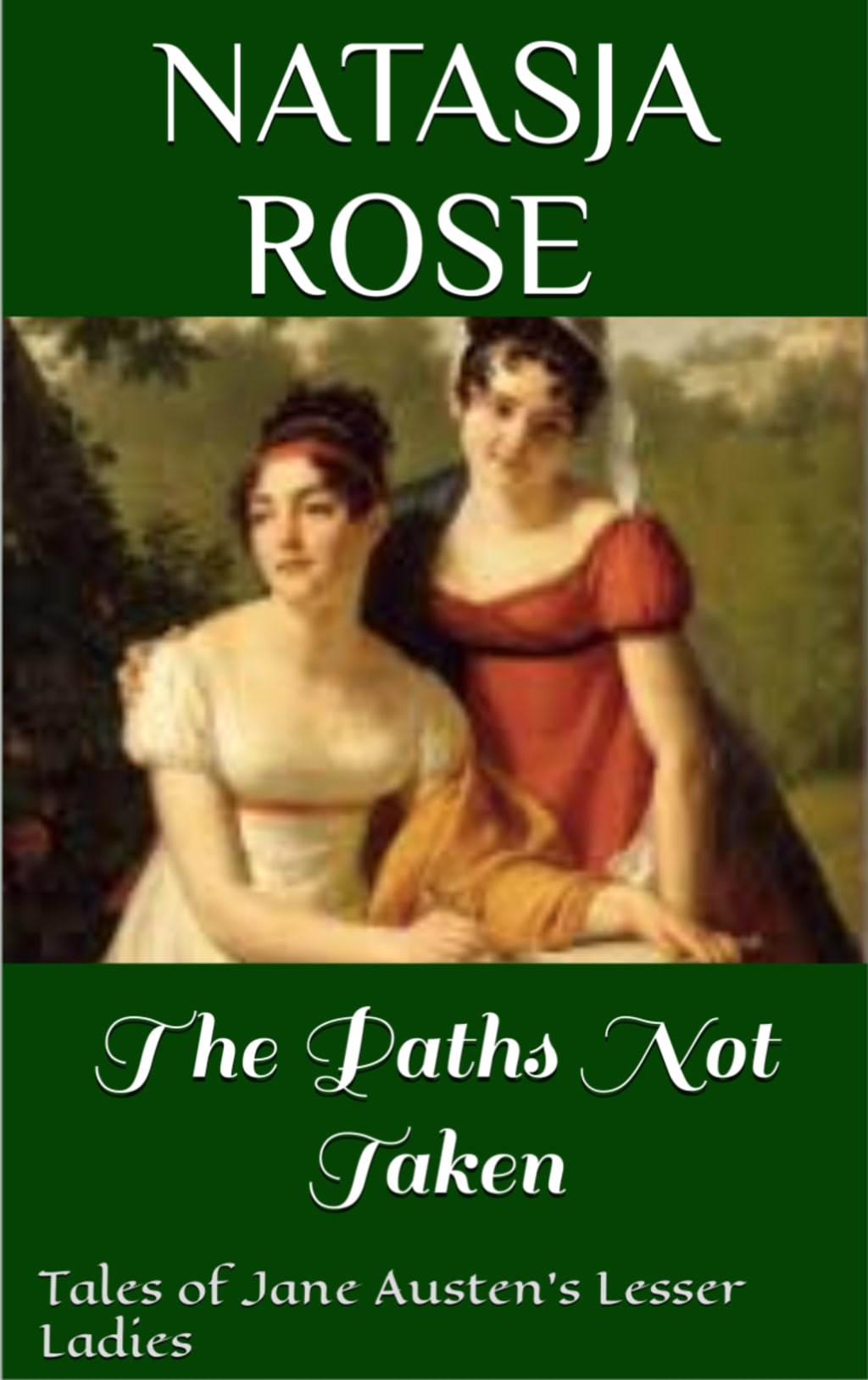Mrs Bennet's Musings
A Jane Austen Variation

Mrs Thomas Bennet, formerly Miss Francine Gardiner, had not always been as she was during the pinnacle of her life.
Known as a local beauty when she made her debut into Meryton Society, Fanny was as educated as any solicitor’s daughter might expect, and better than many others of her ilk. She could sing and play the Pianoforte, and was accomplished enough as a hostess that her Mama allowed her to participate in planning her first dinner. Fanny could mend and embroider well enough to bring a plain dress within her family’s means up to match that of a wealthy gentlewoman. Sums and economy were something she struggled with, and she had a tenuous grasp of whether an expence was a necessity or a luxury, but Fanny could manage household accounts, and she was certain that her future husband could manage the education of their hypothetical sons.

Fanny remembered Young Master Thomas Bennet as the quiet young man who sometimes accompanied his father, the Master of Longbourn estate, to Mr Gardiner’s office to discuss contracts and other legal matters.
The first time they attended an Assembly together, while Mr Bennet was home from Cambridge on a break, Fanny was struck by the changes in him. Gone was the tongue-tied, gangly youth who smiled politely and then stood about awkwardly until his father called him to attend. In that youth’s place was a handsome, witty young Gentleman who looked at the young ladies in appreciation, but was no rakish flirt.
Miss Fanny Gardiner approved.
The Senior Mr Bennet had mentioned to Fanny’s father that his son would have to finish University before he would entertin the notion of searching for a wife. While many young ladies expressed disappointment, Fanny was glad. It gave her time to prepare herself, and plan the approach most likely to succeed.

Officially, Gossip was a shameful vice that young ladies would do best to avoid. Unofficially, gossip was the lifeblood of any community, and any young lady of sense kept herself well-informed.
The other four-and-twenty families of Meryton kept an eagle eye out for Longbourn’s Cook or Housekeeper. Fanny kept an eye on the maids, who she knew to frequent a tea shop on their half-days off. It was simplicity itself to persuade Edith to visit the tea shop with her at the same time, whereupon she promptly abandoned Fanny to speak with Mr Phillips, their father’s clerk.
With an entire pot of tea and a lemon tart to herself, and maids always keen to save a penny or two, they were happy to join her for a while. Having little to talk about besides the workings of the estate, and the people they occuped, they also had far less scruples about sharing those facts than the Cook or Housekeeper did. Indeed, maids were a font of information, a fact that Fanny bore in mind for the future.
Young Mr Bennet did not dally with maids or tennant’s daughters, nor was he so haughty and cruel-minded as the heir to Netherfield Park, who the maids suspected would find himself in a duel or fleeing to the continent or the Americas before he inherited. Old Mr Bennet was pleased with his marks at Cambridge, and had instructed Cook to plan for his favourite dishes when he returned upon graduation at the end of next term.
The kitchen maid might not read, but she had a prodigious memory, and could recite the dishes in question easily. Fanny took a moment to write them down in her household book, where she kept countless lists of the things she needed prompting to remember. How fortuitous; that she already had reciepts for several of those dishes written down!
Then Edith and Mr Phillips were approaching the table, and Fanny was obliged to return home with them. She quickly paid for another pot of tea for the maids, so they would remember her well. There was no harm in having the favour of her future household.

There were a shortage of gentlemen at the next Assembly, so while Fanny was a much-desired partner, she was required to sit out a few dances.
No matter, she spent her time productively, speaking to Old Mr Bennet as one of the non-dancing gentlemen she had a prior acquaintance with. Careful to avoid those topics men tended to disapprove of, she inquired about his health and news of his son, reasoning that no parent would hesitate to talk about the child he took pride in. Fanny’s father read the papers to his children, and discussed them with her brother Edward when he visited from London.
Father might lament that Edward chose to be apprenticed to a Merchant Trader instead of studying law, but he was as supportive as he was able of his children.

Those conversations left Fanny well-placed to hold up her end of the conversation, and to smile prettily and invite him to stay for tea when he next visited Mr Gardiner’s office.
Mr Bennet was not due to review the accounts until next month, after his son was due home, and would be accompanying his father to learn the duties of an Estate.
Young Mr Bennet did accompany his father, and tea went so well that he promised Fanny the first set at the next Assembly, and Edith the second, and accepted their invitation to dinner.
Mrs Gardiner could see which way the wind blew, and allowed Fanny to plan the menu. It required Fanny to send her pin money to Edward, so he could source strawberries out of season from a London hothouse, but she succeeded in presenting the younger Mr Bennet’s favourite Strawberry Trifle for dessert.
At the next Assembly, he danced the supper set with her, too.
Within a year, he proposed marriage.

Their marriage was not without it’s trials, not the least of which was the discouraging reality of five daughters and an estate entailed to the male line.
Even so, Fanny had no true cause to repine. Her husband loved her still, despite their differences, and if her youngest daughters had inherited less of their father’s mind, they were yet young enough for some harmless flirting with an officer to trouble no one.
When Kitty finally confessed to the letter Lydia had sent from Brighton, Mrs Bennet nearly fainted, and immediately took to her bed.
Mr Bennet’s anger was rare, and all the more wrathful for it. Her worry over what would happen would do him no good, now, and preparations must be made for him to pursue the young couple.
She summoned Hill, to have Cook pack a basket for the carriage, which would surely stop only to exchange horses. Another note, to the stables and the home farm, to have the horses hitched to the carriage, and inquire about the price of hiring a few from Meryton or Netherfield until Mr Bennet returned. Fields must still be ploughed, after all, especially if the worst came to pass.
Fanny could lay claim to a final quarter’s rent before that vile Mr Collins and his opportunistic wife came to turn them out into the hedgerows, with only Fanny’s dowery and the girls’ inheritance to live off.
Better not to dwell on her husband’s potential death. Mrs Bennet turned her mind to more hopeful options. Mr Wickham might be prevailed upon to marry Lydia; a gentleman’s daughter was nothing to scoff at, especially for a penniless Steward’s son. Her brother Gardiner might be prevailed upon for a monetary bribe, for a scandal would affect him, too, even if Lydia was only his niece.
The difficulty would be in concealing the circumstances. A claim that they married from Brighton, perhaps, or that they did go directly to Gretna Green, because Lydia’s visit with Mrs Forster was coming to an end and the Militia was soon to decamp to their next destination. People would whisper, but no-one could actually prove that they had not, and it would be forgotten at the next scandal.
Lydia and Wickham must be welcomed to Longbourn at least once, of course, as Mr Bennet would any son-in-law he had given his consent and blessing to. Lydia would not have an entire new wardrobe, for they would have to limit their baggage, but some winter clothes and a new cloak, in case the Militia found itself north during the winter months.
Besides, Lydia would need to be told about the life of a married woman in more detail, especially if Wickham was honourable enough not to have enlightened her already. The duties of a wife and future mother on a limited income, for example, and the virtues of a household book if one did not have a good memory. The importance of ensuring that her children had some education, even if it was only the ability to read and write and do sums.
Lydia would not have maids to do everything, but that might be made a shared expense if Wickham’s fellow married officers were open to joint lodgings. The signs that a woman was increasing with child, facts which unmarried maidens were kept ignorant of.
Those things, and a whispered warning that if Lydia’s new husband proved truly honourless, enough of a Cad to abandon or abuse her, Lydia would have a home at Longbourn for her father’s lifetime.
Mrs Bennet would put on a good front, for the sake of her other daughters, but she would not trust Mr Wickham so freely as she had in the past.

Well, Mr Darcy must not be so bad after all, if he reunited Jane with Mr Bingley, and cared so much for Lizzy that Lady Catherine had come all the way from Kent to interfere in the union!
Three daughters married, and two of them very well indeed! Fanny would go quite distracted! Mary and Kitty had some way to go yet, but Jane and Lizzy would surely be able to put them in the way of wealthy husbands, if they couldn’t find any young men to fall in love with in Hertfordshire.
Mrs Bennet squeezed her husband’s hand in silent support - he was never easy in social situations, a trait that he and Mr Darcy could bond over later - as they returned to Longbourn for the wedding breakfast.
Truly, she was the most fortunate of women!
If you liked this story, leave a heart or a tip, and follow me on Vocal and Medium!
About the Creator
Natasja Rose
I've been writing since I learned how, but those have been lost and will never see daylight (I hope).
I'm an Indie Author, with 30+ books published.
I live in Sydney, Australia






Comments
There are no comments for this story
Be the first to respond and start the conversation.